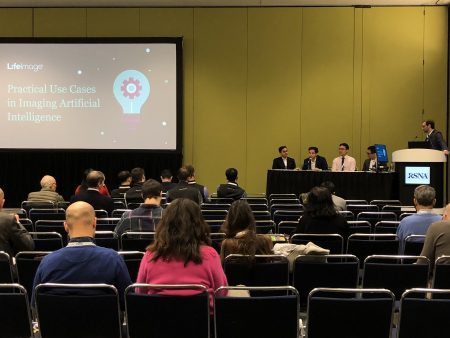| Dr. Soon-Shiong in his LA office where the walls are literally filled with his grandiose vision for the future of medicine. |
In the most significant proposal of President Obama's final State of the Union he announced Patrick Soon-Shiong has teamed up Vice President Joe Biden and the largest pharmaceutical companies in the world to launch Cancer Moonshot 2020 in a unified effort to cure cancer once and for all. Vice President Biden published his vision for the Moonshot project today on Medium.
"There are unique times in history when events and advancements in technology converge to elicit a quantum leap in medical care. This is not only a unique time, but also a unique inflection point in the history of cancer,” said Dr. Patrick Soon-Shiong, M.D., Founder and Chief Executive Officer of NantWorks and the Chan Soon-Shiong Institute of Molecular Medicine. “The era of immunotherapy has taken the oncology world by storm. For the first time in 40 years there is a glimmer that we may be able to win this war against cancer. Large pharma and biotech companies are developing dozens of agents to activate the immune system. The problem is that while these drugs are being developed individually in silos by each entity, they need to act together when it comes to activating the immune system. If we follow the current path of drug development, it may take 40 or 50 years before we have worked out the right cocktail combination and countless lives will be lost as a result of this inefficiency.”
- Nation’s first insurance coverage of next generation whole genome sequencing and proteomic diagnostic platform in cancer patients.
- Next generation sequencing and precision medicine evolving from research to the clinical trial and cancer care setting
- Coalition to design, initiate and complete randomized clinical trials at all stages of cancer in up to 20 tumor types in as many as 20,000 patients in multiple phase 1 to 3 trials by year 2020
- Beneficiaries and patients will undergo next-generation molecular sequencing and gain access to over 60 novel and approved molecules to be tested as immunotherapy combinations in 20,000 cancer patients with cancer across all tumor types: The QUILT Program
The QUILT (QUantitative Integrative Lifelong Trial) program is designed to harness and orchestrate all the elements of the immune system (including dendritic cell, T cell and NK cell therapies) by testing novel combinations of vaccines, cell-based immunotherapy, metronomic chemotherapy, low dose radiotherapy and immunomodulators -- including check point inhibitors-- in patients who have undergone next generation whole genome, transcriptome and quantitative proteomic analysis, with the goal of achieving durable, long-lasting remission for patients with cancer.
The multiple Phase 1 and 2 protocol designs will be a collaboration between academia, pharma, and clinical scientific experts in immunotherapy in accordance with the recent published U.S. Food and Drug Administration guidance of “Co-development of Two or More New Investigational Drugs for Use in Combination.” Multiple companies are currently exploring first-in-human clinical trials as part of agreements between government agencies, including Immunology Branches of NCI, academia and community oncologists. Multiple randomized Phase 2 trials testing genomically and proteomically informed novel combinations of immunotherapy agents, will pave the way to identifying cancer therapy combinations with the lowest toxicity and the highest quality of life.
Both academic cancer centers and community oncologists will participate in the QUILT Program to enroll 20,000 patients by 2020. The QUILT Program will be stratified across multiple Phase 1 and Phase 2 trials, addressing up to 20 tumor types including breast, lung, prostate, ovarian, brain, head and neck, multiple myeloma, sarcoma, pancreatic cancer, among others. Pharmaceutical and biotechnology partners have made an unprecedented commitment to make more than 60 novel immunotherapy, targeted therapy and chemotherapeutic agents available to be combined across multiple tumor types.
Below are videos of the press release at the JP Morgan Conference in San Francisco and a description of the project.
Below are videos of the press release at the JP Morgan Conference in San Francisco and a description of the project.
















